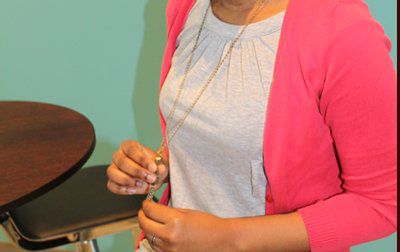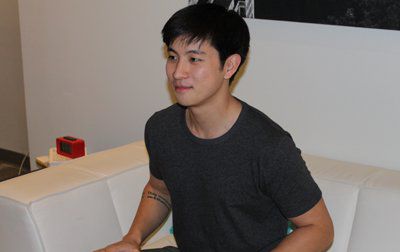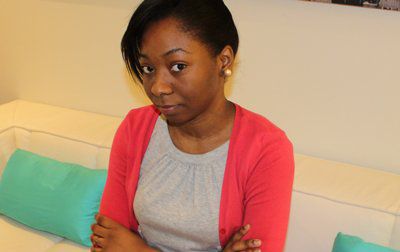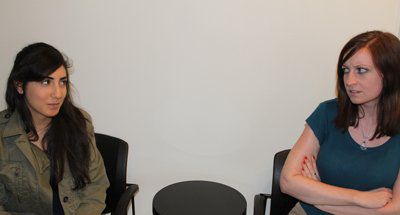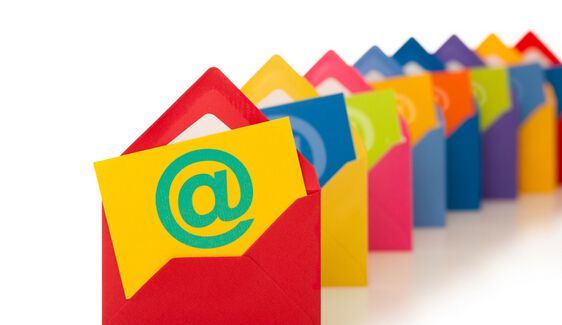面试时的你需要了解的肢体语言
|
爱思英语编者按:阿尔伯特·梅拉宾教授指出,只有7%的信息是通过语言传达的,而其他93%的信息是通过声音语调(38%)和身体语言(55%)传达的。工作面试时,得体的身体语言非常重要,否则,即便你的语言表达无可挑剔,你的身体语言却已经出卖了你。 12 Facts About Body Language You Should Know Before Your Next Job Interview
Karl Rozemeyer at TheLadders says in a report that involuntary body language can be compared to stage fright for an actor. To see how actors effectively communicate with their bodies, Rozemeyer spoke to John Treacy Egan, a Broadway actor, and Jodie Bentley, an acting coach. “I think it is important to have body awareness before you go into an interview,” Bentley said. "There are many actions and habits that we should consider doing or avoid doing to tell the right story during the interview setting." TheLadders gave us permission to share these 12 body tricks jobseekers should master before stepping into the interviewing room. All of the photos are modeled by Business Insider staffers. 1. Feel good about your wardrobe and wear clothes that 'show you in your best lighting' “I really think that the clothes that you wear impact who you are, and if you wear something that makes you feel fabulous, your body language is going to be so much more comfortable in the moment," Bentley said.
Bentley advised: “Wear a piece of jewelry or a scarf or something that has meaning to you and can ground you in the moment. If I get nervous, sometimes I will look at my wedding ring and think of my husband who supports me, and I realize I should be doing this and I am on the right path." "When we get nervous, we feel ourselves being removed from our bodies slightly. I think that having that talisman is a great way just to keep us grounded and present in the moment.”
Keep both of your feet on the ground and try not to cross your legs, which Egan said gives off signs that you're unsure of yourself.
“Nervous energy isn’t good,” Bentley said. “And so a lot of people cross their legs and shake their legs over
5. Place your hands on your knees
“If you have to make a point,” Egan said, “you can use your hands.” However, try not to speak with your hands, so keep them on your knees so that you'll be aware of them.
“You don’t want to sit back,” Egan said. “Leaning backwards can leave the impression that you are overly relaxed and can make you look untidy.”
“I think that is a bad habit that a lot of people fall into. It definitely closes you off (from the interviewer). Not a
“I have big, red, curly hair, and I used to twirl my curls when I got nervous,” Bentley said. “It is about really being honest with yourself and saying to yourself: ‘What are my habits when I get nervous, and how can I eliminate them?’ ”
“If you are standing at all in the interview, then hands in the pockets are a big no-no. That just looks so clumsy and messy,” Bentley said. Instead, Egan advised to "let your hands drop to your side, and talk. When you need to use your hands, engage them.”
“Some people just get too close for comfort,” Bentley said. “They think that they want to make a connection, so they get closer. Really knowing that boundary is really important.”
“If you need a prop like a pen, use it if it makes you feel a little bit more comfortable,” Egan said. “Start with the place where you feel safest, holding your hands together or holding a prop, but give yourself the chance to step away from that during the presentation or interview. It makes you look stronger.”
“In a conversation, (actors) never fully lock eyes with people,” Bentley said. “We talk, we look people in the eyes, we have a thought, and we look away. We look to the right, and we look to the left.” Egan agreed: When you start staring at them, you start "to look a little crazy. If you feel like you are looking the person in the eye too long, hold it one more second and break away.” |

